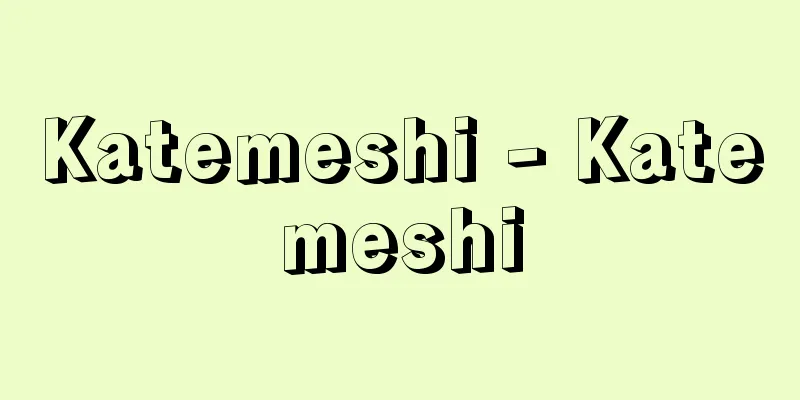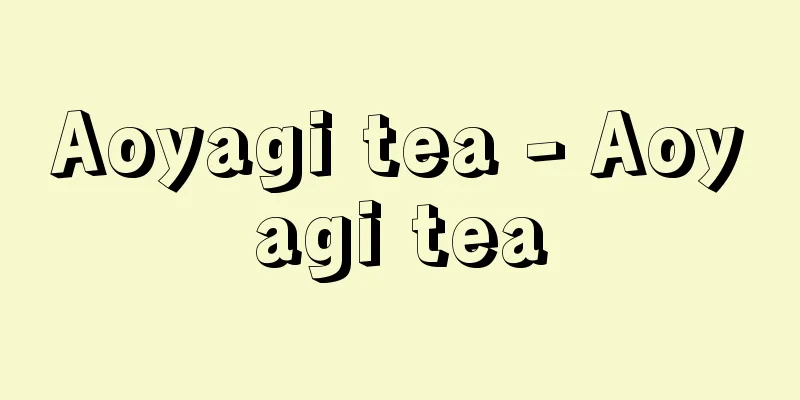Katemeshi - Katemeshi

|
…The only occasions where farmers could eat enough rice were limited to festivals for their local gods, annual events such as Obon and New Year, and ceremonial occasions such as weddings and funerals. The word that most symbolically expresses the staple food of farmers is 'Kate-meshi'. Since 'Kateru' means to add, 'Kate-meshi' means food made by adding a small amount of rice to something other than rice, and such 'Kate-meshi' usually did not require any side dishes. … *Some of the terminology that refers to "Katemeshi" is listed below. Source | Heibonsha World Encyclopedia 2nd Edition | Information |
|
…農民が米を十分に食べることが可能な機会は,氏神の祭,盆や正月の年中行事,冠婚葬祭などに限られていたのである。農民の主食をもっとも象徴的に表現した言葉はカテ飯である。〈カテル〉とは加える意であるから,カテ飯は米以外のものに少量の米を加えた食べ物ということであり,このようなカテ飯には,副食を必要としないのがふつうであった。… ※「カテ飯」について言及している用語解説の一部を掲載しています。 出典|株式会社平凡社世界大百科事典 第2版について | 情報 |
Recommend
Angular back - Kakujo Totsuhai
...the 13th daughter (Jusan no Kimi) of the Shin ...
Guinizelli, G. (English spelling) GuinizelliG
...The Sicilian School had already adopted the Pr...
Treaty of Amity between Japan and China
On July 29, 1871 (Meiji 4), Date Munenari of Japa...
Pseudo-Isidorean Canons - Pseudo-Isidorean Canons
In Latin, it is called Decretales Pseudo-Isidorian...
tricuspid valve
…There is a mitral valve in the left heart and a ...
Arsaces [I] - Arsaces
...A kingdom in Western Asia. Also known as the A...
Traverse survey - Traverse survey
Also known as polygonal surveying. A method of sur...
Magnetic materials
This refers to materials that perform magnetic fu...
Okinawa War Memorial National Park
This quasi-national park, located at the southern...
Nicene Creed - Nicaea Constantinople Creed
A creed used in Christian liturgy. It is generally...
Children of Yellow Earth
…After returning to Japan, he became the director...
Andalusian dialect - Andalusian dialect
… The Iberian Peninsula was once almost completel...
Tenan
The Japanese era name (nengo). It was used from 85...
Ritsurin ruins - Kuribayashi ruins
A Yayoi period site in Ritsurin, Nakano City, Naga...
Restaurant - Ryoriten
〘Noun〙 = Ryouri-ya (restaurant) ※Civil Code (1896)...









